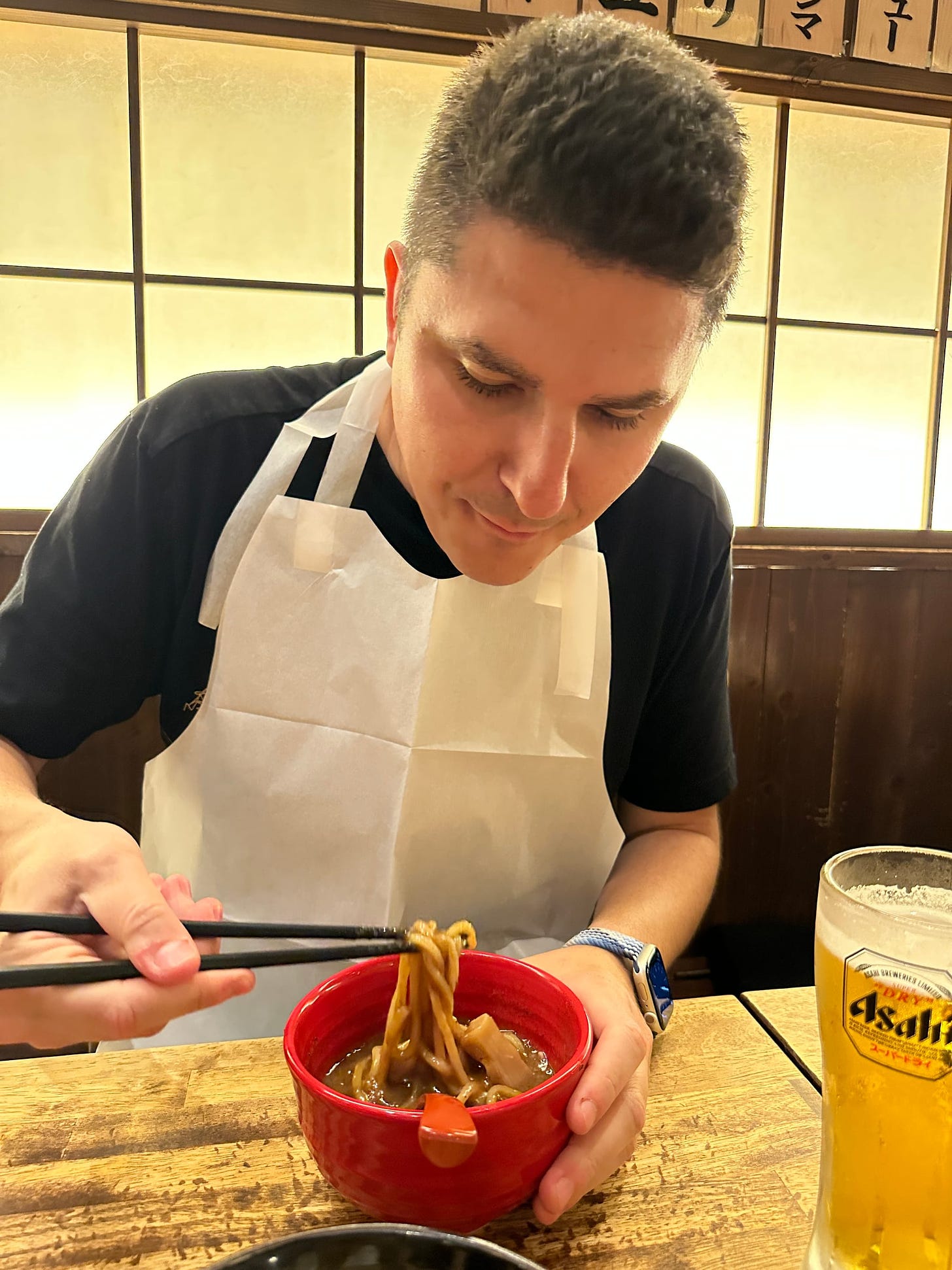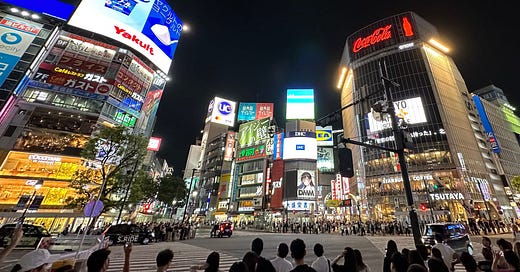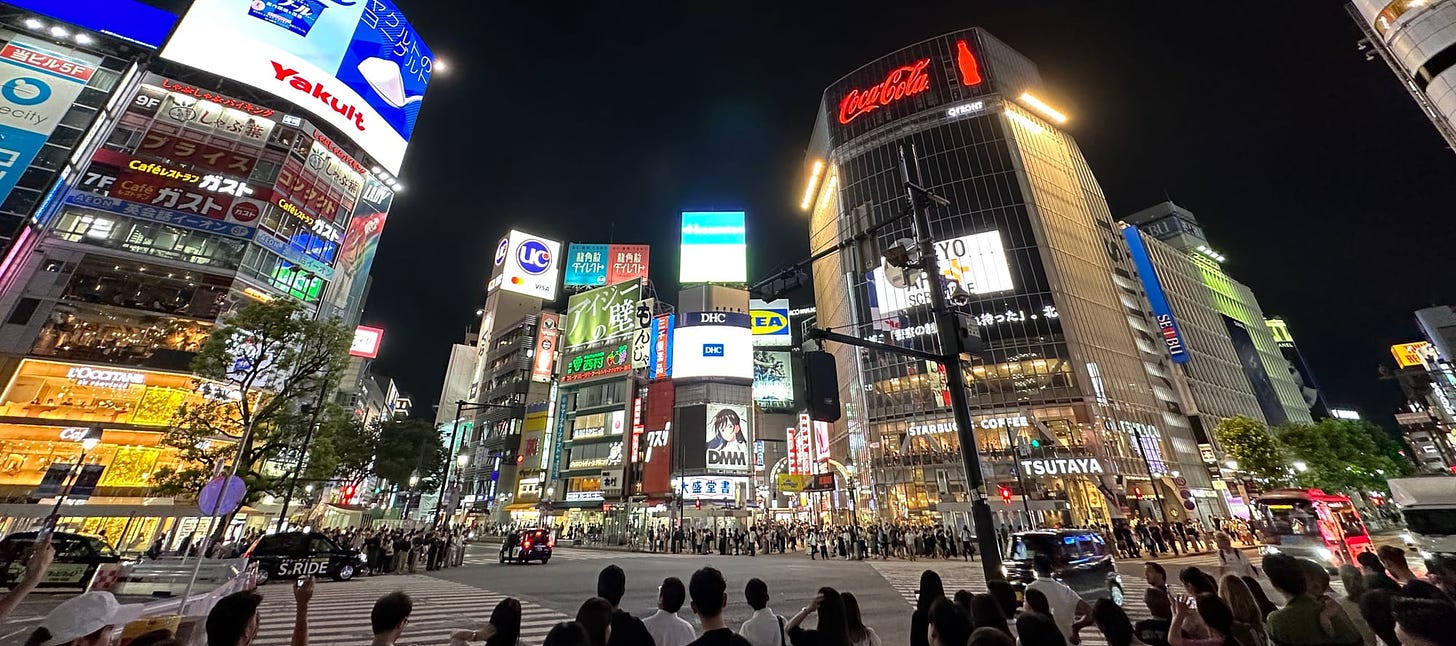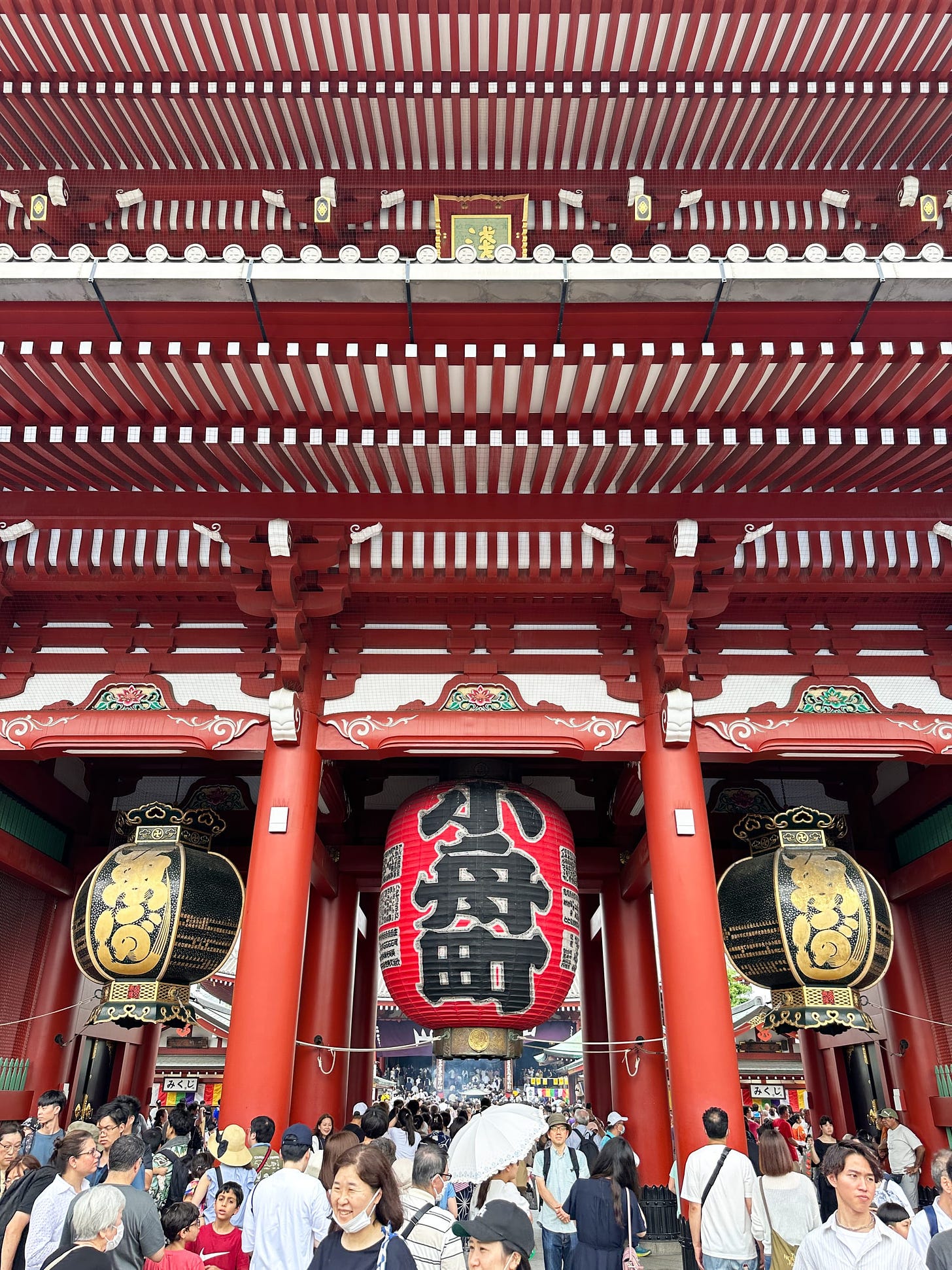retro 2023
Every year around this time I write a little retrospective on yearly highlights and learnings, but this is the first year since I have done it where I feel so much has happened, that one blog post won't be enough.
This year I've learned a lot more about myself, but mostly I've taken action on a lot of learnings from the previous year. I took a break of a few months between projects to breathe, tinker, and learn. I traveled a lot. I built new projects. I explored new technologies. I started a new company. I retired my trusty 10-year-old Thule backpack for a new Aer that I hope can last as long.
Most importantly, I feel it's the first year since I started the startup rat race where I've been able to do things on my terms, my way. In many ways, even if it sounds crazy, the last time I professionally did things my way was when I started my first serious tech blog at 15.
Back to the roots and doing things my way
I've had an intuition for years that I've never fulfilled. I felt if I had just a few months to myself, without commitments or direction, I could tinker my way into building something amazing. It would grow organically, as I tinkered more and more, into something actually useful. I just needed time (and enough money to pay rent for a few months). I had it in the back of my mind for so long until it finally became real. Earlier this year I left my baby Silo to take a much-needed break, travel, and tinker.
My first angel investor was and is, unsurprisingly, my wife. I remember watching last year a fireside chat with Infosys's founder where a member of the audience asked him if the need for financial stability inhibited founding the company, to which his wife, Sudha Murthy, interrupted saying "he had a working wife, no problem". Well, I feel very much identified. Without Sadel's hard work, I wouldn't have had the time or be able to afford to take a break, tinker, and start bem. After 18 years together, she continues believing in me – even my craziest ideas – but is also a fierce critic of my bullshit when need be.
And so I did. I took a break and played video games. Then I started driving myself up the walls needing to do things and build things. So I did. This is peak LLMs, so I tinkered precisely with that. I built my modern take on a text processor which you can only control and type with your voice, which I continue to use for my personal writing because it helps me get ideas out of my brain where I'd otherwise be stuck. I have to admit I was a little stuck when it came to problems to solve and mostly focused on the underlying technology, but I knew, I knew I just needed to keep coding and the ideas would come to me. And so they did.
🧠 Intelligently listen to your instinct
I should write a big blog post about this, because of the mistakes I've made in the last 10 years, this probably is the most egregious. Having an instinct and not listening to it is like having an open dictionary in front of you and instead trying to guess what words mean. Now I'm not saying the instinct is everything. The "intrusive thoughts" meme has become popular these days and for some reason: don't confuse compulsiveness with instinct. Instinct is just the inkling of an idea, that something may be right or wrong, that you're headed on the right or wrong path. It's not the full story.
I did hide my instinct for a very long time, though. Too long. San Francisco startup culture can be very enveloping and opinionated and I've made decisions (or lack thereof) in the past influenced by prevailing sentiment that in hindsight, I should've analyzed more critically. I've had a few of these moments over the years, especially when you see yellow or red flags about something or someone, but you let it slide. That's on me. You can't control what others do but you can control your decisions.
I started formulating theses in my head on how to use LLMs in a productive way that elevated humans and enabled companies. So my cofounder Upal and I started bem.
This is my 3rd company – 4th if I count Kite as my own (though not founder on paper, I was the first employee before we had a name or a product) – and I've never had more fun. They tell you to enjoy the journey, but I always found it very hard to do while worrying about every single thing.
Experience has taught me that in business, most things simply don't matter. Others do. A lot. But most don't. For those that don't, I've learned to make an informed decision efficiently and move on, so they don't transform into chronic distractions. For those that do, I've learned to give my utmost attention to detail.
What matters? Your team (this includes your investors). Your customers. Your product. That's it. Find an office that makes sense for your stage and is priced accordingly? Sign the lease and move in. Don't run a process. You know what else doesn't matter? Your logo. It pains me to say this as a designer, but it simply doesn't. Don't spend time and money hiring a designer to make you a logo. Something nice, something quick, something that doesn't suck. You'll have time in the future to improve it. Your customers couldn't care less. Most things that distract you from creating value are ego-driven projects that slightly increase your dopamine and make you feel busy and valuable. No. Screw that.
But for the things that matter, be obsessive. Make sure you run an exhaustive fundraising process to optimize to get the best investors in the mix. Fundraising is recruiting, and recruiting is about acquiring talent. Make sure your team has the resources, the support, and the culture to thrive, make mistakes, learn, and produce value. Make sure your customers are set up for success – when you become their vendor, you can either be a leech or become a rocket booster that propels their growth, propelling also yours in return.
I'm digressing. The ideas did come and the rest is history – a history that is very much starting now. SHAMELESS PLUG: If you want to be part of that history and are a software engineer, do come tinker with us. It's fun and it's getting better every day.
Traveling
I told you this post was going to be long.
I did a lot of traveling this year, which makes me incredibly happy. Every time I've followed Anthony Bourdain's advice on how to travel, I've had the best experiences. Every single time. Get a massage at the airport (doesn't need to be fancy, just good enough to un-knot the stress out of your contracted elder millennial muscles) and do not eat the airplane food. Arrive at your destination hungry, physically and mentally.

I was fortunate enough to travel to my beloved Spain, Ecuador, Colombia, Japan, and South Korea this year. The highlight, without a doubt, was Tokyo. I'm a suburbanite-turned-into-urbanite, and Tokyo was everything I wanted and expected. Imagine a city of 40 million people that runs efficiently, has great public transportation, and is clean. Visiting Tokyo made me understand better the Japanese obsession with good design and their concept of beauty. Do I have secret plans to go back as soon as possible? Absolutely.
Most recently I traveled to Colombia to visit Medellín on our way to Ecuador. How a city can go from the most dangerous on Earth to one of the most beautiful, clean, and safe cities in Latin America is beyond me.

Technology, politics, and social change
Let's go back to technology for a second.
In times of rapid technological change, there's usually a parallel and connected explosion of new philosophy. Many of us are still trying to figure out how AI fits into humanity and most importantly, which problems can it help us solve. A lot of people are attempting to dictate how AI should shape our society while not fully understanding how AI works or what LLMs are.
I haven't talked about it as strongly in this blog, only in person and after a couple of Manhattans. I love reading about history and I can't help but see parallels with the beginning of the 20th century, a period of rapid technological advancement paired with new philosophical and political currents such as futurism. Futurists in the 1900s, much like many optimists today, were enamored with the idea of advancing technological development by any means necessary. Futurism eventually devolved into the early innings of fascism and the subordination of individual rights for the benefit of the common industry.
Even if it is just a farewell to this post, I'll state my position on this. I firmly believe technology should be a tool to elevate humanity and to effect social change in the form of increasing equity, creativity, and the collective good. We should be thinking about how to use AI to reduce our rapidly growing inequality gap, create stronger safety nets for those who need it most, and provide opportunities.
I want to see more and more – and I will personally support – projects that use AI to guarantee a single mother of 2 doesn't cross the threshold into homelessness, someone working 8 hours a day can earn a livable wage and enjoy a healthy life, and mental health is treated as a first-class citizen. I've mentioned this before in this blog: I still maintain that the greatest crisis we'll have in the 2020s in Western society will be a crisis of lack of purpose and mental health. Millions of people have been playing by the rules for many years to realize their hard work isn't being rewarded and the economy they were asked to participate in is disenfranchising them. In many ways, the new economies tech has created have ignored and failed to reach the middle and lower economic classes. I'm convinced we can use technology, and AI specifically, to create new economies of scale that reach everyone.
Energy
I'm incredibly energized and optimistic. My life is completely different than it was a year ago as I was writing my retro 2022. I've learned a lot and most importantly, I feel I mustered the courage to apply a lot of those learnings.
2024 is going to be insane.






